
Which Design supports overall low coupling? and why?


Which Design supports overall low coupling? and why?
In first one Payment is created by Sale so this is more coupled.
in second one there is low coupling with dependency injection - http://en.wikipedia.org/wiki/Dependency_injection , witch is a design pattern that separates behavior from dependency resolution, thus decoupling highly dependent components. Payment and Sale were highly dependent in first picture.
In the first one payment is coupled to Sale. In the second one its coupled to Register and Sale. I would say the first has lower coupling because Register has no concept of payment. Payment could completely eliminated completely and would require no changes to Register. In the second if you eliminated Payment both Register and Sale would need to change.
I don't see the point in the first example. Register is not needed?
In the second example any kind of payment can be used. (Visa, cash etc). Hence it's more loosely coupled.